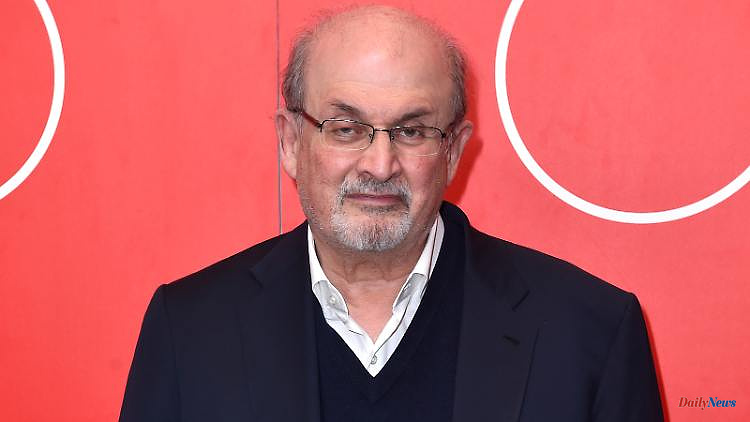Three days after the assassination of writer Rushdie, Iran has denied any responsibility in connection with the attack. Although a fatwa in the country has been calling for the author to be killed for years, Tehran blames Rushdie for the attack.
Iran has categorically denied any connection to the attacker on writer Salman Rushdie. Instead, a spokesman for the Foreign Ministry in Tehran blamed the author himself for last Friday's attack. "There is no one to blame or condemn for this attack other than Salman Rushdie and his supporters," spokesman Nasser Kanani said.
Nobody has the right to blame the Islamic Republic of Iran, Kanani said at his weekly press conference in Tehran. By insulting the sacred cause of Islam, crossing the red lines for more than 1.5 billion Muslims and their followers, Rushdie "exposed himself to popular anger," the spokesman said.
British-Indian writer Rushdie was attacked with a knife at a reading in Chautauqua, New York on Friday. The 24-year-old attacker stabbed Rushdie at least 10 times. Rushdie is now on the mend.
US Secretary of State Antony Blinken said in a statement on Sunday that Iranian state media were "gleefully delighted" about the attack. "That's despicable," he added. German Foreign Minister Annalena Baerbock said on Twitter that anyone justifying the "assassination attempt" on Rushdie was spreading "nothing but hate and extremism."
The ultra-conservative Iranian newspaper Kayhan praised the attacker as a "brave man" who "ripped open the neck of the vicious" Rushdie with a knife. Other media in Iran made similar statements. There were also statements of support for the perpetrator in Pakistan.
The attacker, identified by police as Hadi Matar, appeared for a court hearing in Chautauqua last Saturday. Through his lawyer, he pleaded not guilty to the charge of "attempted murder" against him. According to media reports, he himself did not say a word.
The attack caused great horror in the western world. Iran's spiritual leader Ayatollah Khomeini issued a fatwa in 1989 calling for the writer to be killed because of alleged insults to the Prophet Mohammed in Rushdie's book "The Satanic Verses". For years, Rushdie lived under tight police protection in ever-changing secret locations. For some time now, however, he has been leading a relatively normal life again and has made frequent public appearances.












